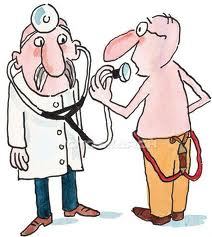
(6-21-21) What is treatment? “Too often, patients spend most the day wallowing in their misery and uncertainty waiting for the next meal or group meeting.”
A recent email from a frequent patient at Virginia Hospital Center in Arlington, Virginia, caught my attention. It echos complaints which I have heard about the quality of care available to individuals with mental illnesses. The writer specifically mentioned a disconnect between a patient and psychiatrist.
In my speeches, I often talk about how my son has had seven psychiatrist since his first break, but only two have taken the time to learn anything personal about him. They simply listen to his symptoms, prescribing medication and send him out the door – usually in under 15 minutes, which is all the time an insurance company wants to reimburse.
But I believe treating the brain also requires treating the whole person.
I remember my son telling me how he resented someone whom he’d only met for 15 minutes deciding he had bipolar disorder and writing a prescription for a powerful anti-psychotic. He was not a widget on an assembly line but that’s how he felt. When I confronted that doctor, he said that he’d seen so many patients who are bipolar, he didn’t really need more time. Days later, my son closed his eyes while driving – because he thought he was dreaming – and ran into a parked car. A second doctor said the first psychiatrist should never have prescribed the medication that he did. He said my son had schizo-affective and prescribed a different medication. Once again, without taking time to make my son feel a connections.
Mahmoud Belhadj nasr’s email touches on problems he experienced at VCH, an award winning local hospital. I’d love to hear your thoughts on my Facebook page, including those from psychiatrists.
Dear Pete,
I have visited the behavioral health unit at VHC over a dozen times in the past 8 years. Id like to share my experience.
When a patient in mental distress waits for hours in the Emergency Room before being taken to a far, neglected corner of the hospital that doesn’t look nearly as nice as the rest of the hospital it sends a message to the patient that they aren’t as important as the other patients.
I’ve complained about molding on the ceiling panels and would return months later to see it still there. At one point, I removed the panel myself. The room had food and drink splattered on the walls that were still there from previous visits. Trash and gum were in the worn out sofas. Nowhere else in the hospital would these conditions be acceptable.
Now, the staff I dealt with are an amazing, compassionate group of people who are overworked and under equipped to deal with the complexity of mental dysfunctions. Patients exhibiting abnormal behaviors are approached by frantic nurses, trying to complete numerous tasks at the same time. When a patient acts out it’s often because they don’t have the words to express their negative emotions and when that patient is approached by a nurse handling several other task they can sense the stress, which only reinforces the negative emotions.
It’s too much to ask of the nurses to multi-task and suddenly stop and switch to therapist mode. There needs to be more mental health professionals working round-the-clock who can approach patients with an understanding that the abnormal behavior is a cry for help.
When it comes to psychiatrists/patient relations the number one complaint I hear from patients is that they don’t trust their doctor. Most doctor/patient interactions take place wherever the doctor runs into their patient and lasts for only a few minutes at most. Psychiatrists need to sit in an isolated area and establish a trusting relationship with their patient. They need to open up to their patient and listen to their patients to create trust. You cant expect patients to trust people with their mental health who they don’t know.
I find it very odd that a doctor would suggest the same medication for all their patients, who have many different diagnosis.
It’s so sad that the most important organ in the body is the most neglected and least understood. (What is treatment?) Too often, patients spend most the day wallowing in their misery and uncertainty waiting for the next meal or group meeting. Mental health patients need one-on-one meetings everyday with a mental health professional to assure them that there is hope for recovery.
Again, I cant stress how amazing the overworked VHC staff is. The problem isn’t with the social work and nursing staff. It is with expecting that staff to do too much with too little time to adequately help their patients.
Sincerely,




